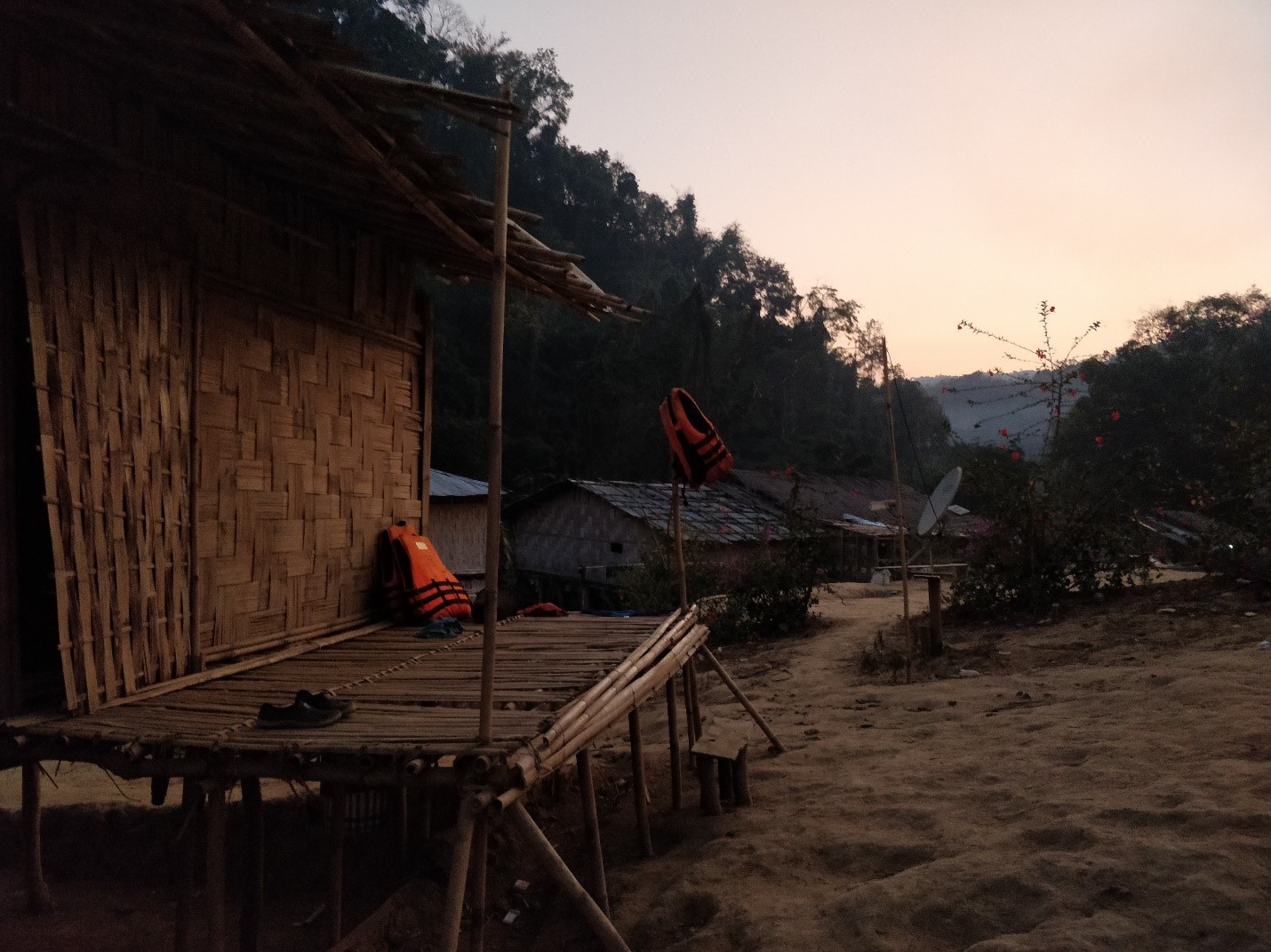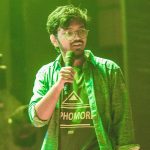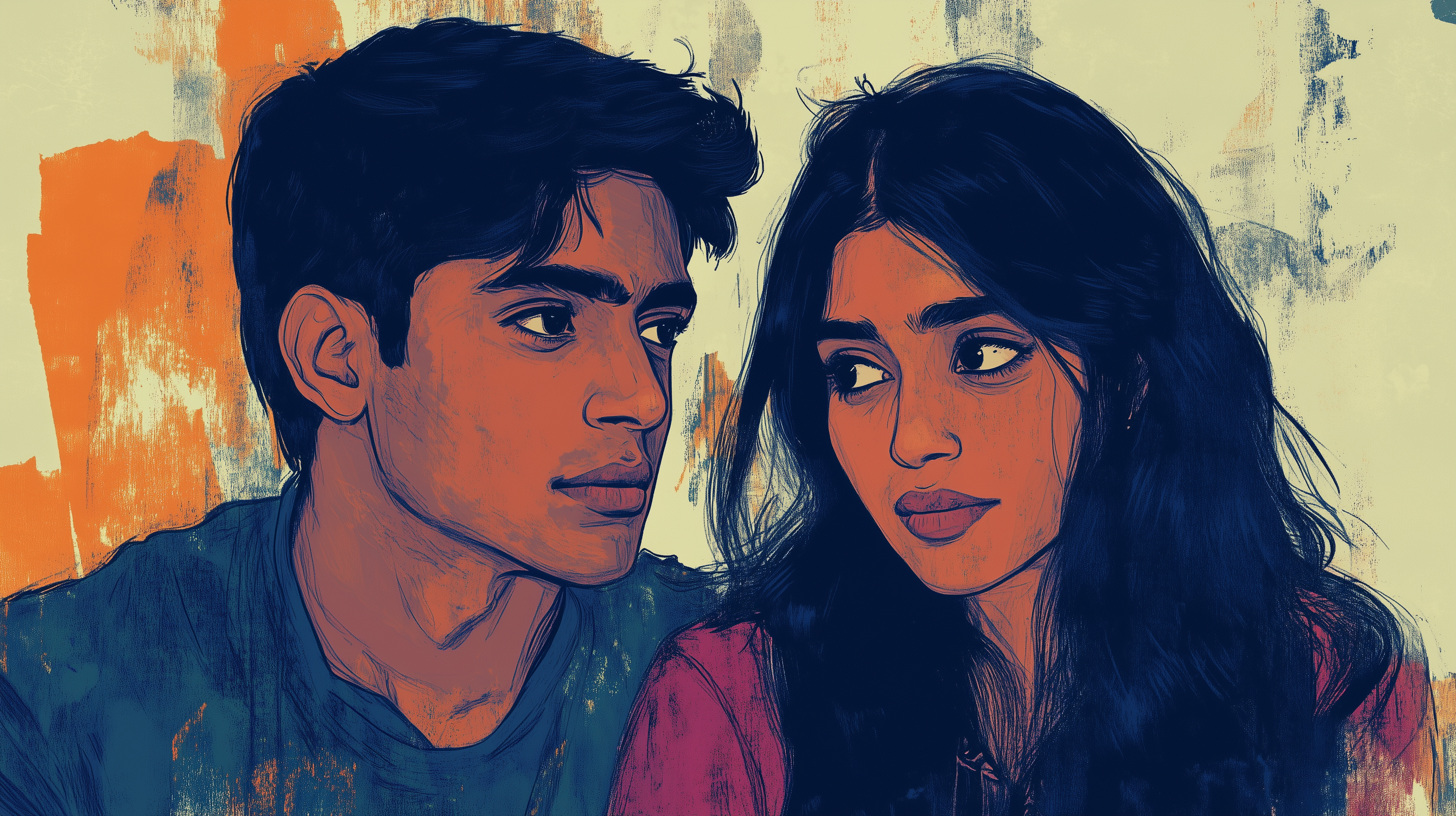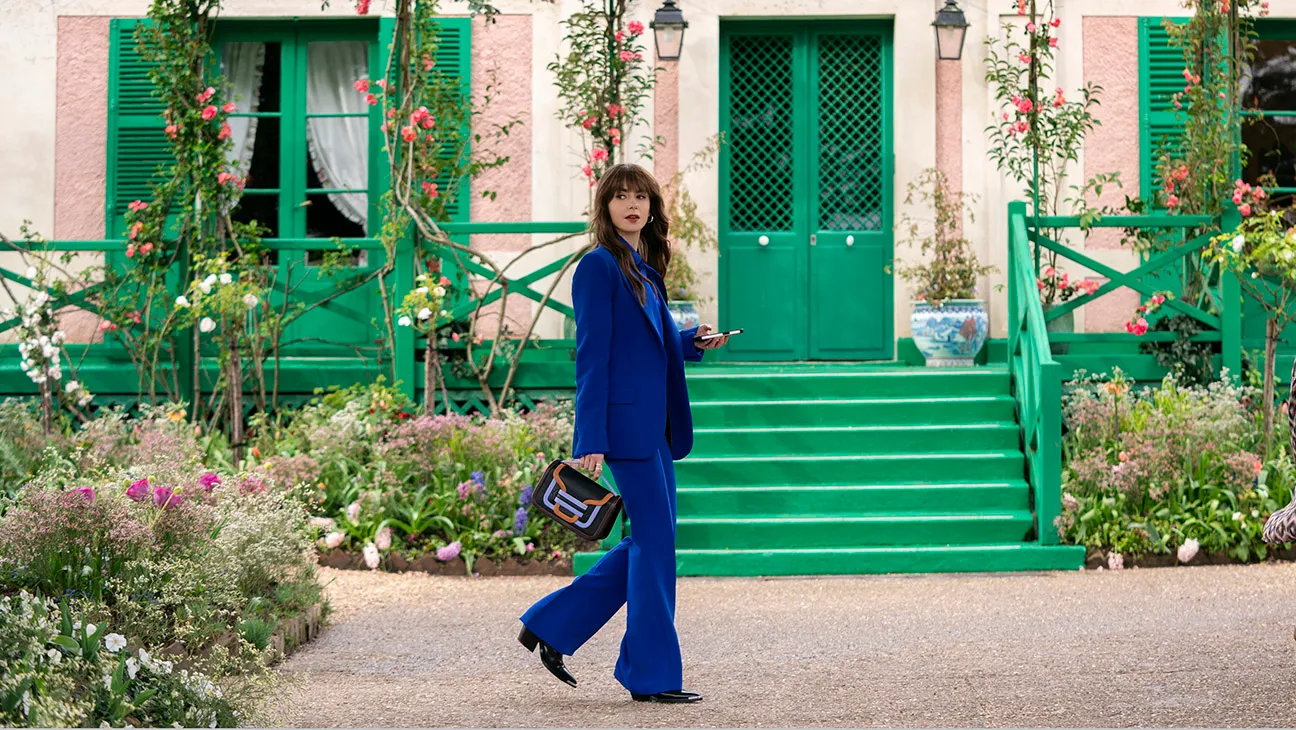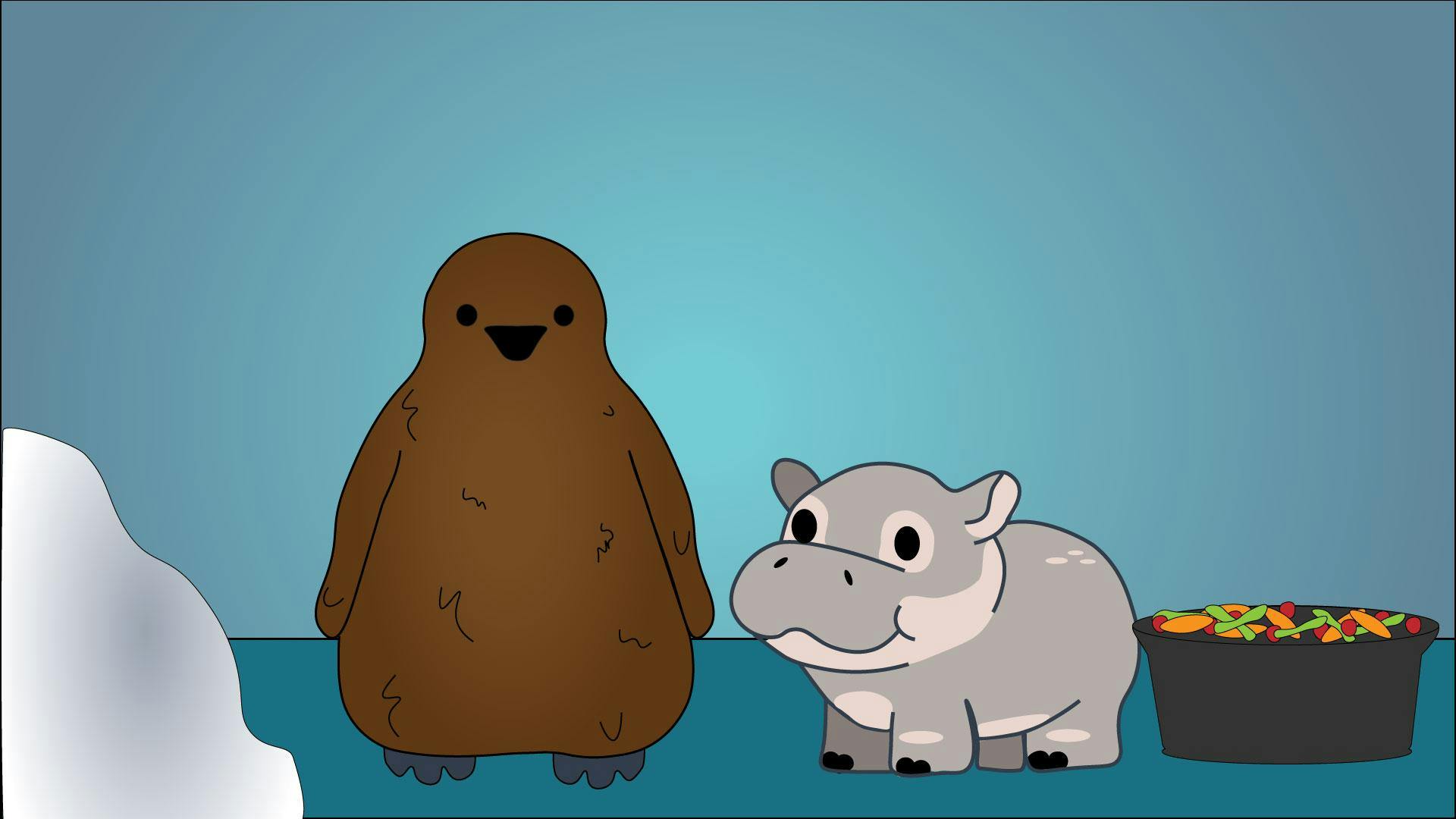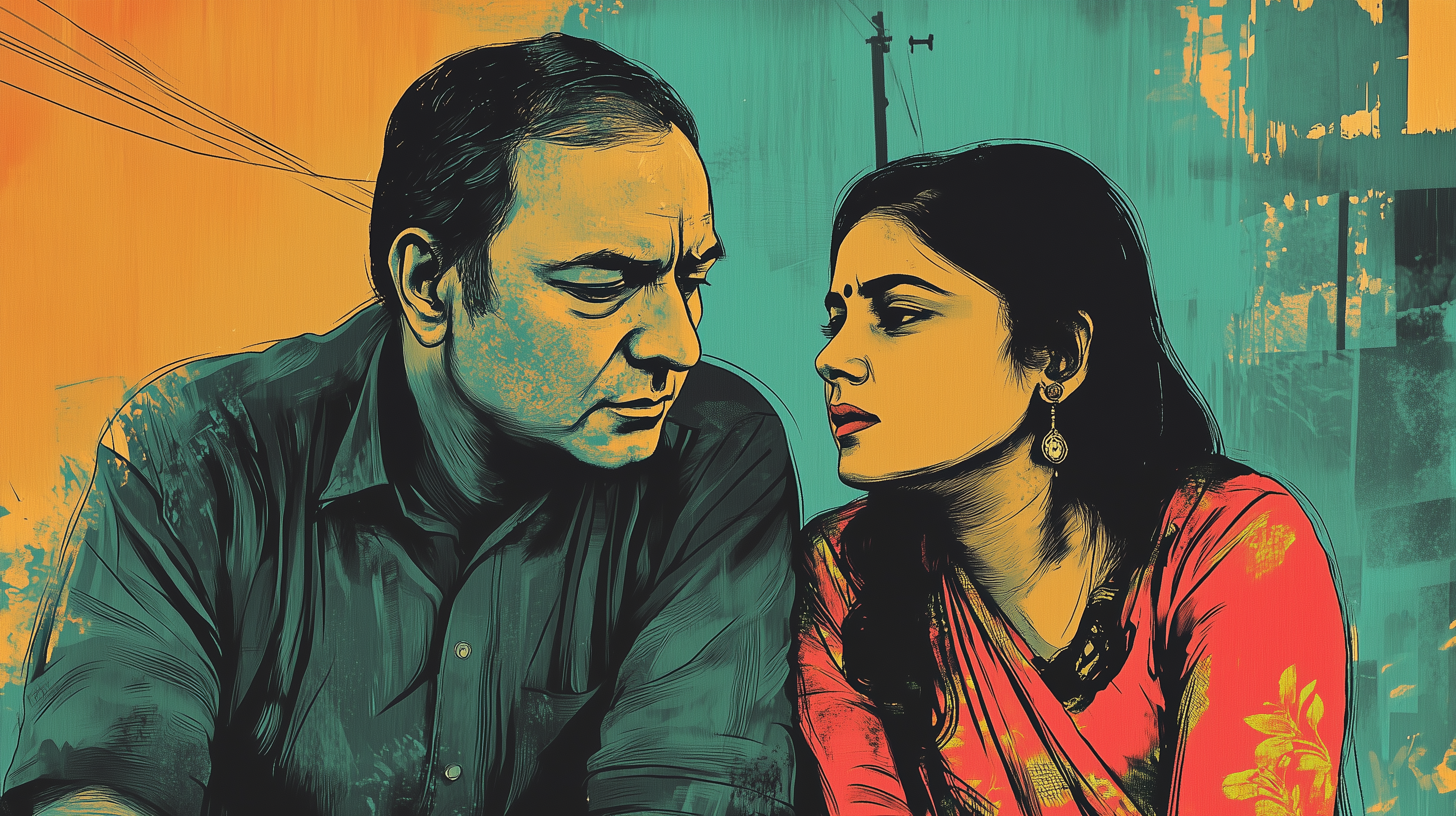This is the third part in a series on Bandarban called The Hills are Calling.
Check out the earlier articles:
Want to know what pain feels like? Plan to trek to NafaKhum with no prior trekking experience, with a tummy still half-empty.
One should only carry backpacks and always pack light if aiming to trek. We found this out the hard way. I left my backpack on the boat and carried my essentials in a separate plastic handbag. Midway through our journey, the bag broke apart, and everything fell. Also, boots are pretty useless while trekking. They slip. I wore the covered sandals I bought outside DebotaKhum. They weren’t comfortable, and the bruises I got from wearing them are still fresh on my ankles as I type this, but they were the reasons I could reach NafaKhum. Also, carry lots of band-aids and napa-strips, and expect lots of bruises.
It was almost noon, and our guide had warned us that it usually takes the slow Dhaka travelers 3 hours to reach NafaKhum. There was not much to see in Remakri, so we decided to start for NafaKhum right away. We were already worried at the beginning. The entrance into the hills from Remakri starts with very steep slabs of white rock. The entry slabs were just the beginning; things got steeper, narrower, and slipperier as we progressed.
The road to NafaKhum, although visually appealing, is pretty much the same as the rest of our travel spots. Clear waters, cool streams, green mossy walls, hills on both sides, and trees covering them. However, the roads here are steeper and hence tougher to travel.
The water here is cool and drinkable. Half an hour into our journey, we came across three huts, two on the left of the road and one further down, on the right. We had already been flustered, and we decided to rest for a while in one of the huts. The huts are shops run by Pahari women that sell FMCGs. A massive chunk of their income comes from selling cheap consumables to tourists. The other half comes from this drink that they brew; it keeps the body warm and energized. We city-kids were unsure how much of it we could take and therefore chose to buy but not drink it yet.
Behind the shops was a clear stream. We refilled our bottles and started again after a total of 10 minutes of resting. On our way, we met other tourists who had been returning from NafaKhum. Had someone told me before, I would’ve never believed that these roads can accommodate two people at a time. I’m sure my tourist brothers feel the same way.
We crossed the shops and walked a long way and passed many people. We sat down to catch our breaths whenever we found an open and empty area. We waited, and then we were on our way again. This cycle repeated. I had it easier because my bag tore apart, and I had to distribute my goods within the other people’s bags. Therefore, from a point, I had to carry nothing anymore.
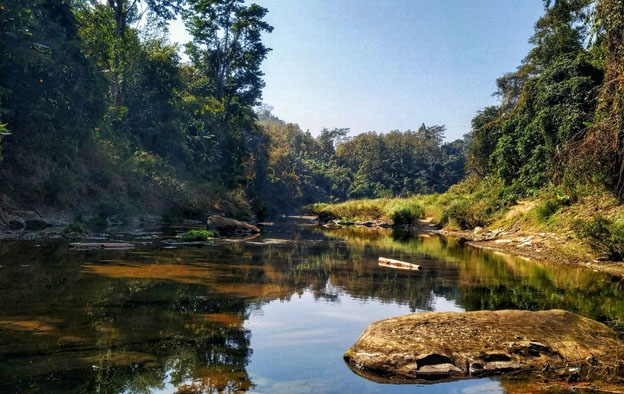
Within 1.5 hours of trekking, we could already hear the wild NafaKhum waterfall roaring at a distance. We had all been sweating from head-to-toe, and the sound of the water falling from a height felt not only poetic but also reassuring, as we finally had a seal that we were nearing our destination. We sat down one last time on a broad slab at an elevated height. Our phones had been packed away, and the five of us had only two phones on us, as this entire region has no cell connectivity. We realized, not having the urgency to check your Facebook Messenger makes you forget its use in your life.
We got up and followed the shingles of the mighty aqua. Within two hours, we had reached the foot of the small village of NafaKhum. On the right was the well-renowned waterfall, and on the left, another hill that housed all the villagers.
Biraj has a family and a bunch of huts in NafaKhum. He allowed the five of us to stay in one. We made one last push to climb the hut. After we reached the hut, we got inside and crashed on the floor. Thatched huts are a mechanical engineering marvel; you’d be surprised at how much stress hay can withstand.
The village of NafaKhum is sparsely populated by Paharis. There are a handful of ten huts, of which the locals use only three. The locals lead simplistic lives. The houses have no furniture. The place is cold, but it didn’t seem to bother the villagers much, judging from the attire of the locals. The village is run on solar power, and at night everything is dark. The villagers keep battery-charged lamps for the tourists.
The locals at NafaKhum lead primitive lives. They practice their own language. They are completely disconnected from civilization. They cultivate paddy and potato through the “Zum” method, meaning that they still depend on hunting for proteins. The mothers are the key decision-makers of the family. They have their own songs, which made us appreciate their awareness of arts. These people don’t have much, but they can’t exactly feel that they are missing out on anything. The Paharis lead decent lives away from any form of modern influence, they have their families, and they are nice to others who pass by their villages. They are happy.
It was around 2 PM when we had reached the hut. Biraj’s relative came knocking about lunch. As previously mentioned, the locals here still hunt for food, meaning that the process of acquiring food might hurt a few people’s religious and cultural sentiments. We asked for egg and pulse. We then rushed to the waterfall.
When we jumped into the stream below the falls, the place was utterly secluded. We were five people swimming around in the lake of NafaKhum without a care in the world. As time passed, people started to pile. I must confess that; the falls are not nearly as big as we see in the Facebook photos. It was pretty nonetheless. The water was running, and we got on top of the falls, secured ourselves with rocks, and dived into the running stream. It was fun, but we don’t recommend it.
At around 4 PM, the place was brimming with tourists. We fell at the intersection of three groups; one group that had arrived from Remakri and were traveling to AmiyaKhum, another group that had come from AmiyaKhum and were returning to Remakri, and the last group that was here to stay. The place got crowded little by little, and we left when Biraj came back to call us to lunch.
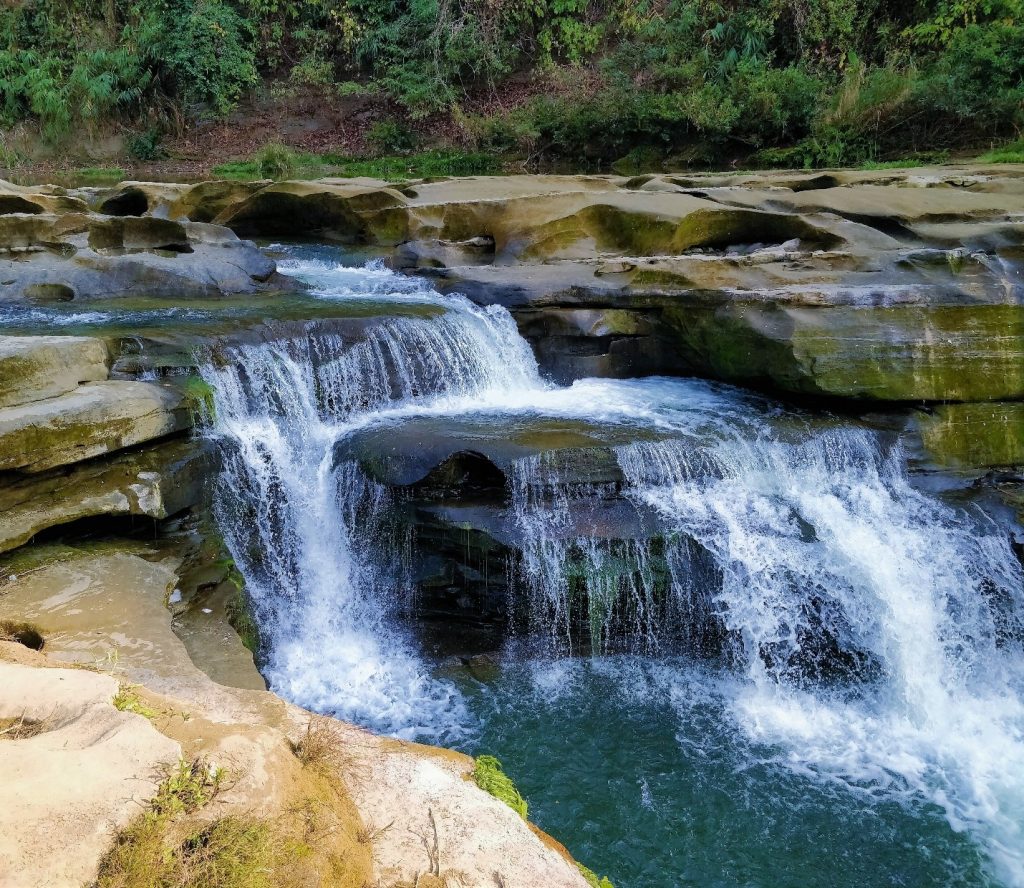
Two of the parties stayed back in NafaKhum with us, and they got separate huts too. We did lunch, and then we roamed around the village for some time. We were instructed to charge our phones while the sun was still shining. Inside the huts, there were facilities to listen to Monipuri-Tripura music. The sight of the huts from our window with Monipuri music in the background felt bewildering. There was this one hut that was a grocery store. The place had chips, cold drinks, cup noodles, cigarettes, playing cards, biscuits, and other FMCGs. Everything, however, was much costlier than usual (ref: 50 BDT for a 250 mL Coca-Cola). When asked about the reason, the shopkeeper told us he does not get these products wholesale because there is no way to contact the company. He buys the products from retailers in the city and crosses the entire trekking distance carrying the goods on his head to reach his store. I could empathize with him; this was a lot of work to keep the tourists entertained. I couldn’t fathom how a shopkeeper could buy anything for selling if the company did not sell him the goods at wholesale price.
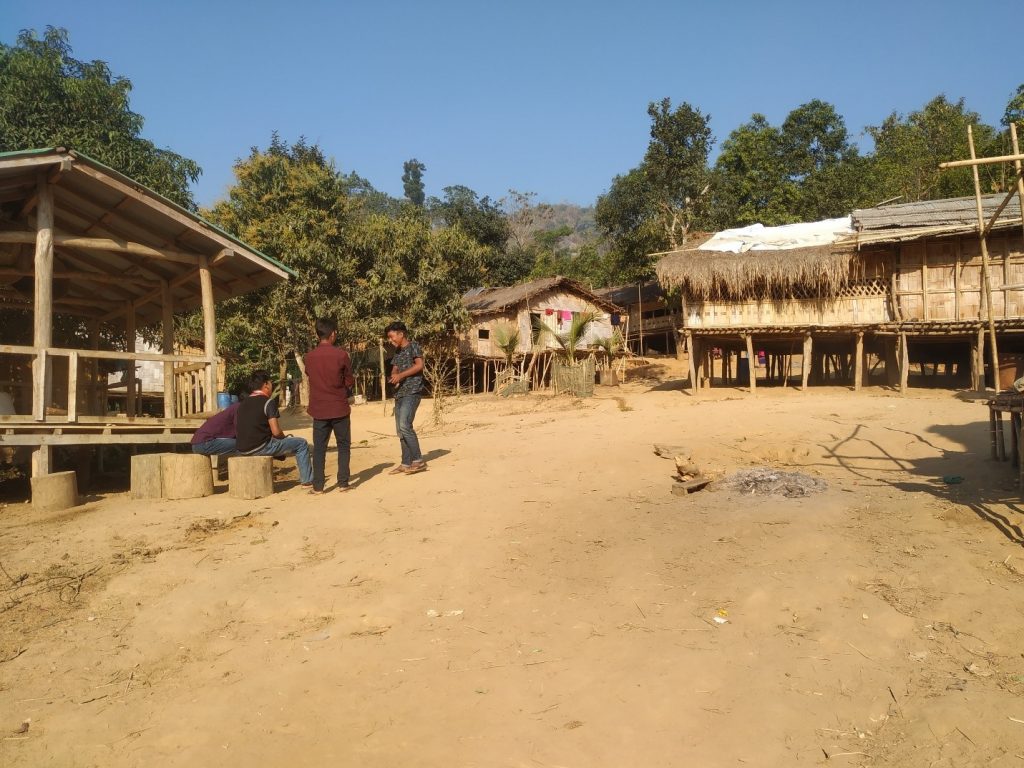
We spent the time chatting with the locals. The hills might have a lack of technology, but we never really felt the need for it. The villagers are people of simple philosophies, “Be kind and get rewarded in kindness,” or “All humans are sacred; therefore, we care for all humanity.” Regular concepts like “competition” or “corporation” or “capitalizing” or “success” or “state” are yet inconspicuous to them.
The place has multiple low-benches. We sat on one till the sun went out. We then stared at the stars. The sky is crystal clear from up in the hills. Never in my life had I seen a million stars, all in the same sky. It was a beautiful scene to have witnessed, and I heard the scene is better from AmiyaKhum. We also watched puppies play. This place has many puppies, and they are friendly with the tourists. We shared treats with them. They hopped around in joy and tried to jump on our laps.
Paharis take care of puppies, and at night they light up bonfires and drink their sacred drinks to keep themselves warm. They sleep early. All of their huts have holes in the walls, and the windows are not closable. Furthermore, there is absolutely no way of locking the doors. Yet, they never seem to lose anything of value. The area goes quiet at around 10 PM.
We decided to go back to the waterfall at roughly 7 PM and sit there till late into the night. We perched atop a safe rock and sat there talking about life and philosophy. There was no light; underneath the starry sky, we saw only the waterfall and heard only the waterfall.
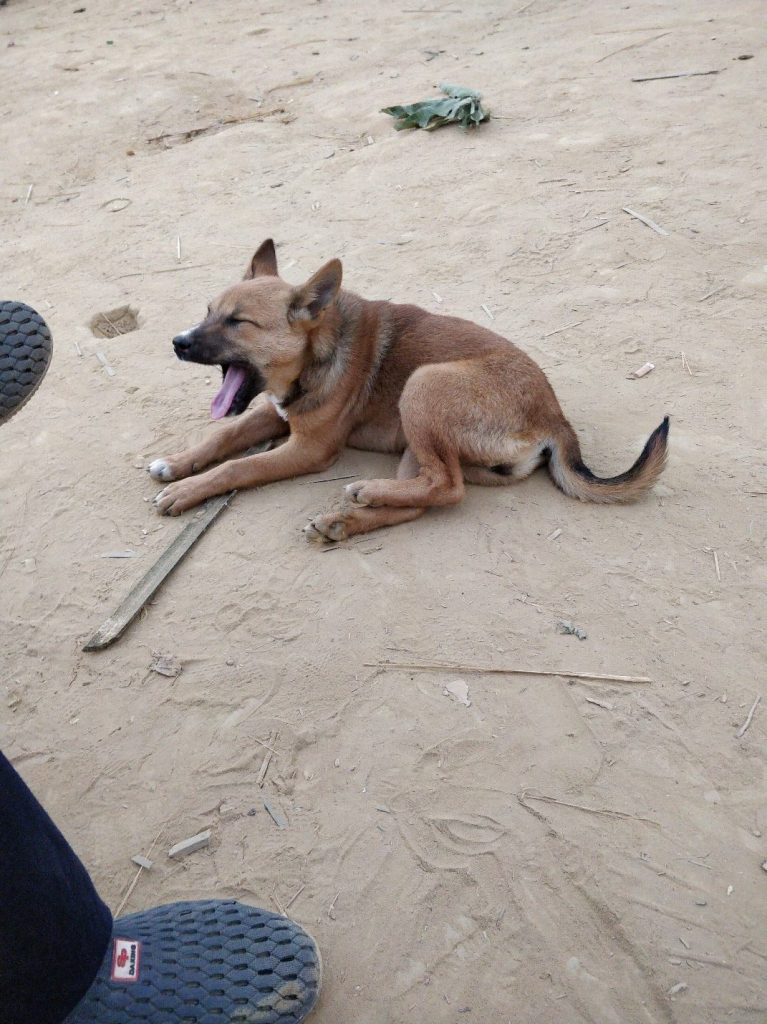
Everything about NafaKhum was beautiful. I wouldn’t regret getting used to this lifestyle.
We returned to our hut a little after 10 PM. We had completely forgotten that the store closes at 8. We did not have dinner. To our luck, the shopkeeper had been around a bonfire close by, and he immediately opened his shop only for us when he saw us. He prepared warm water for us (a challenging feat up in the hills), and with that water, he prepared noodles. We thanked the shopkeeper and took our dinner to our huts, where we enjoyed the food around a fun game of bridge. We must admit, dealing with the Thanchi cold had made us more tolerant, and we faced fewer problems dealing with the NafaKhum cold. The hut-owners also gave us better blankets, and we were pretty comfortable.
Our night at NafaKhum had been drawing towards an end, and we knew it. We tried not to think about it, and with that end in mind, we chugged down on our heavenly Pahari brew.
